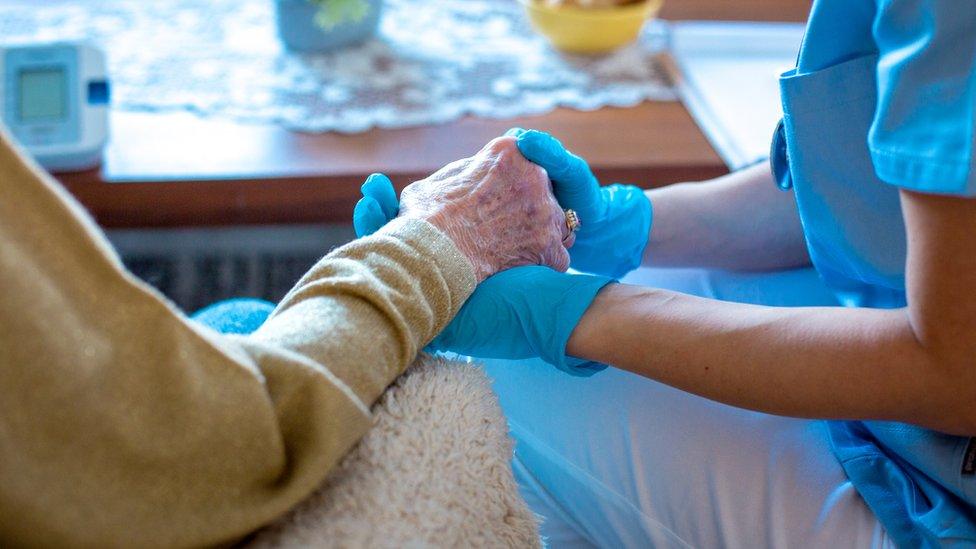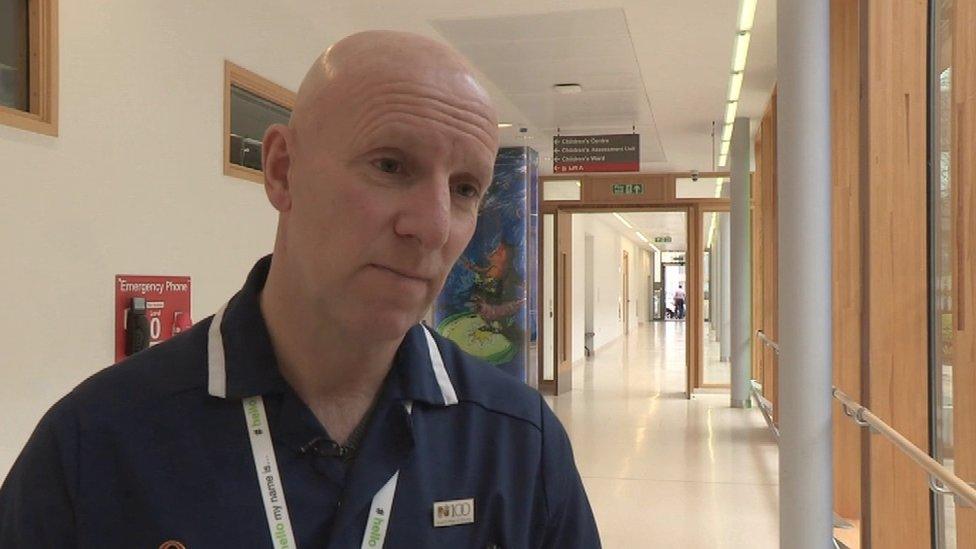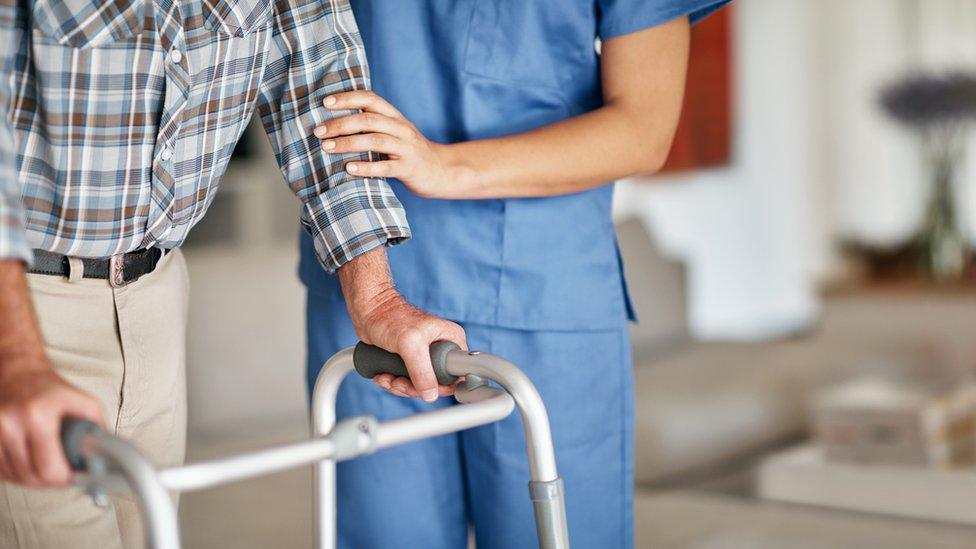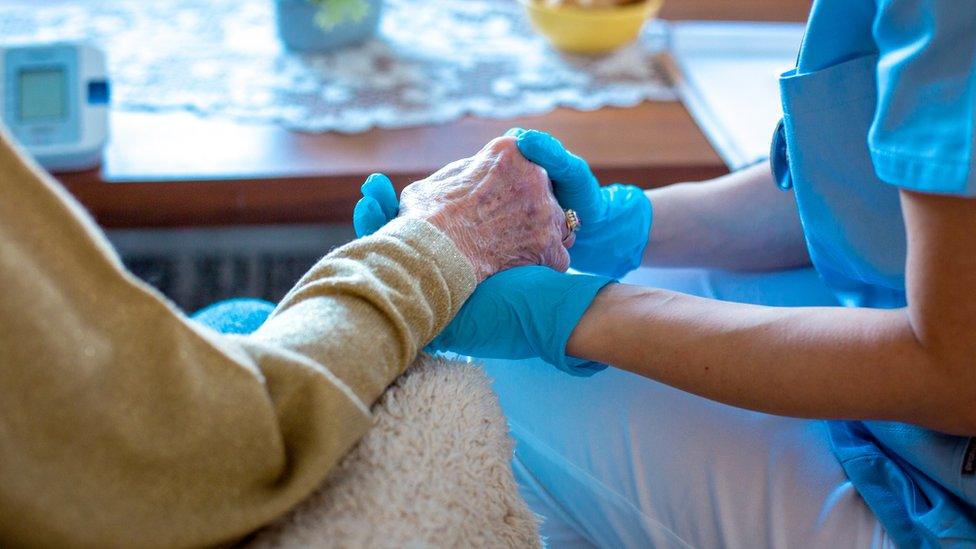Carer shortage: Robin Swann set to unveil pay proposals
- Published
- comments

Many vulnerable people need regular visits from carers in order to be able to live in their own homes
Health minister Robin Swann is finalising proposals to improve pay for social care staff in Northern Ireland.
A spokesperson for the Department of Health said officials have been in discussion with employers and a decision was due "in the very near future".
Concern has been growing about a shortage of staff in the sector.
Some domiciliary care companies have had to withdraw services as they struggle to recruit.
The spokesperson said: "The department can confirm that discussions have been ongoing in respect of funding for remuneration of staff in the domiciliary care and the wider social care sector and that proposals are being finalised.
"Notwithstanding ongoing budgetary pressures, the minister intends to announce his decision in the very near future.
"In developing these proposals, we have had constructive engagement with social care employers with the shared objective of improving terms and conditions for employees."
At present, about 75% of home care in Northern Ireland is provided by the independent sector.
On Thursday, Dr Bob Brown of the Western Health and Social Care Trust told councillors in Londonderry the domiciliary care sector was struggling to recruit and retain staff.
He said an additional £2 per hour could have a "significant impact".
Dr Brown, the trust's director of care and older people's services, told the council's health committee the department has been working with the trust "to identify ways this winter to incentivise domiciliary care".

Dr Bob Brown said the trust has "made its case to the department"
"Terms and conditions are a key issue," Dr Brown said.
He added: "There has been some calculations that indicate, that assuming an increase in the hourly rate gets straight into the carers' hands rather than the provider's hands, it could have a very significant impact on recruitment, even a £2 per hour increase."
The Western Trust said that proposals on domiciliary care staff pay "are under active consideration".
"To clarify, these are not Western Trust proposals but NI-wide proposals led by the minister and department," the trust said, in a statement.
"They form part of a package of measures being finalised to support the domiciliary care sector through this winter.
"In addition, proposals for the longer-term reform of adult social care will shortly be the subject of a public consultation launched by the minister.
"The consultation will include the vital issue of properly rewarding and recognising social care staff - which the minister has made clear is a priority for him."

About 1,600 people across Northern Ireland have been assessed as needing a care package - that is they need help with washing, dressing or cooking, or adaptations to their home.
Many are waiting in hospitals or care homes because there is not enough home-based carers to provide the level of care they require.
Domiciliary or home care packages allow those who are ill or vulnerable to be cared for in their own house.
But, according to the Northern Trust, some independent providers have raised concerns about the sustainability of their service as they do not have enough staff.
The trust said the problem is particularly acute in the Mid Ulster area with concerns also emerging in Causeway area too.
While it is mostly the independent sector that is affected, BBC News NI understands that the trust's own service is experiencing challenges which may mean reducing the number of calls.
Figures from the Department of Health show that as of October the number of people waiting for a care package, many of whom are in care homes, has dropped to 1,657.
That includes:
410 people - Belfast Health Trust
402 people - Northern Health Trust
280 people - Southern Health Trust
424 people - South Eastern Health Trust
141 people - Western Health Trust
BBC News NI understands that many front-line care staff feel the number waiting on care packages could be much higher.
Related topics
- Published10 November 2021

- Published16 August 2021
